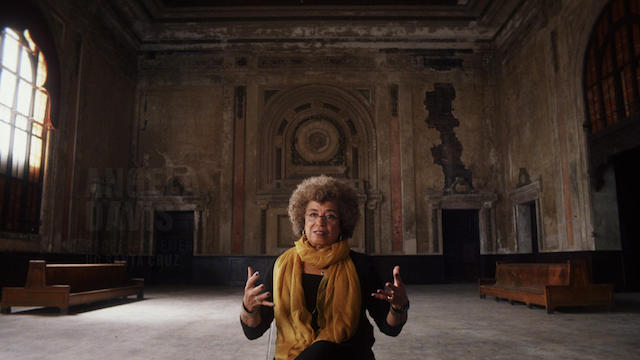‘13th’ Ava DuVernay’s “13th” is devastating, beautifully researched and important — but aren’t those cuss words in our culture? Do such adjectives not make the doc, which is essentially about the history of white-on-black racism in America, sound like eating your vegetables? But watching “13th” never feels like eating your vegetables. It has an urgency that goes beyond the timeliness of its subject. It may be a talking heads-and-clips affair, but it’s designed with such force and fire that it would leave one shaking even if we weren’t facing a possible Trump presidency. It is, to borrow Woodrow Wilson’s description of D.W. Griffith’s “The Birth of a Nation,” “history written with lightning.” And how: “13th” offers a “secret” or “alternative,” history of America after the Civil War right up through, essentially, a few weeks ago. It argues, cogently and shatteringly, that generations of white politicians and lawmakers have exploited a loophole in the 13th Amendment, which added that free black people could be jailed “as punishment for a crime.” And jailed they have been. DuVernay’s job, as a historian and a filmmaker, is to connect the dots. She and her roster of smart, eloquent commentators trace a mutating virus, walking us through Jim Crow, the Southern Strategy, the Reagan-era War on Drugs, the Clinton-era crime bill, the rise of corporate prisons — all laws designed to disproportionately target and punish black citizens. All the while a ticker counter shows the meteoric rise of the prison population, a large number of them black. RELATED: Ava Duvernay on wanting “13th” to make America “think differently” As she reclaims history, DuVernay is laser-focused yet comprehensive, unsparing. She doesn’t even excuse Hillary, juxtaposing footage of her describing black youths as “super predators” in the ’90s with Trump stirring up mob mentality over the “Central Park Five.” She’s not afraid to be on-the-nose, as when she cuts video of white people assaulting black protestors at Trump rallies with chillingly identical footage from the ’60s. As balance, of sorts, she includes no less than Newt Gingrich saying, “No one who is white understands what it’s like to be black in America.” By the time she’s arrived at the era of Trayvon Martin, Oscar Grant, Eric Garner and Philando Castile, it’s hard to argue her point that racism never went away — it just went underground. This is political filmmaking in the fiery spirit of Jean-Luc Godard and Chris Marker, collecting the established wisdom of her gallery of experts and tying it all together in a neat bow. That its showing on Netflix and not theaters does not rob it of importance; no one goes to the movies to watch social issue docs now anyway. Instead it’s beamed into every home, ready to change hearts and minds with but a click. Maybe even your Fox News parents will watch it. It’s mandatory viewing that doesn’t feel like work; it feels like a privilege — as key a piece of art as any about the black experience.
Director: Ava DuVernay
Genre: Documentary
Rating: NR
5 (out of 5) Globes
New on Netflix: ’13th’ is more than the most important film of the year

Netflix
Follow Matt Prigge on Twitter @mattprigge


















